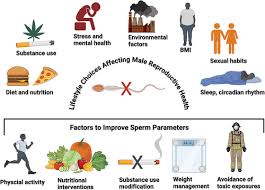
Human Chorionic Gonadotropin (HCG) is a hormone naturally produced during pregnancy, but it also plays a crucial role in men’s health. HCG injections have gained popularity as an effective treatment for low testosterone, infertility, and other hormonal imbalances. Brands like Pregnyl and Novarel provide pharmaceutical-grade HCG, offering men a safe and medically approved option to enhance fertility, boost testosterone, and improve overall well-being.
In this comprehensive guide, we’ll explore how HCG injections work for men, their benefits, proper dosages, potential side effects, and why they might be the right choice for optimizing hormonal health.
How HCG Works in Men
HCG mimics luteinizing hormone (LH), a key hormone that signals the testes to produce testosterone and sperm. In men, LH is produced by the pituitary gland and stimulates Leydig cells in the testes to release testosterone. When natural LH production is low—due to aging, hypogonadism, or steroid use—HCG injections can effectively replicate its effects.
Key Functions of HCG in Men:
-
Stimulates Testosterone Production – By binding to LH receptors, HCG triggers the testes to produce more testosterone naturally.
-
Supports Sperm Production – HCG helps maintain healthy spermatogenesis, making it a valuable treatment for male infertility.
-
Prevents Testicular Atrophy – Men using anabolic steroids or undergoing testosterone replacement therapy (TRT) often experience testicular shrinkage. HCG keeps the testes active, preserving size and function.
-
Enhances Fertility – For men with low sperm count or motility, HCG can improve reproductive health, increasing the chances of conception.
Benefits of HCG Injections for Men
1. Boosts Testosterone Levels
Low testosterone (hypogonadism) leads to fatigue, low libido, muscle loss, and mood swings. Since HCG stimulates natural testosterone production, it offers a more balanced approach compared to synthetic testosterone injections. Many men report improved energy, muscle mass, and sexual function after starting HCG therapy.
2. Treats Male Infertility
For men struggling with infertility due to oligospermia (low sperm count) or azoospermia (no sperm in semen), HCG can help restore sperm production. It is often prescribed alongside other fertility medications like clomiphene (Clomid) or FSH (follicle-stimulating hormone) for optimal results.
3. Maintains Testicular Function During TRT
Testosterone replacement therapy (TRT) can shut down natural testosterone and sperm production, leading to testicular atrophy. Adding HCG to a TRT regimen prevents this side effect, keeping the testes functional and reducing the risk of long-term infertility.
4. Supports Weight Loss and Metabolic Health
Though primarily used for fertility and testosterone, some men experience fat loss with HCG due to its impact on metabolism. However, this effect is more pronounced when combined with a strict low-calorie diet, as seen in the HCG diet protocol.
5. Improves Mood and Cognitive Function
Low testosterone is linked to depression, brain fog, and irritability. By restoring hormonal balance, HCG can enhance mental clarity, focus, and emotional well-being.
HCG Dosage for Men
The optimal HCG dosage depends on the intended use:
For Testosterone Boost & Fertility:
-
500–2,500 IU injected 2–3 times per week
-
Common starting dose: 1,000 IU twice weekly
-
Fertility treatment may require higher doses (up to 5,000 IU weekly)
For TRT Support (Preventing Testicular Atrophy):
-
250–500 IU injected 2–3 times per week
HCG is typically administered via subcutaneous (under the skin) or intramuscular injections. Blood work should be monitored to adjust the dose based on testosterone levels and sperm count.
Potential Side Effects of HCG in Men
While HCG is generally safe, some men may experience:
-
Estrogen-related side effects (gynecomastia, water retention) due to increased testosterone aromatization.
-
Acne or oily skin from heightened androgen activity.
-
Mild injection site reactions (redness, soreness).
-
Mood swings or irritability if hormone levels fluctuate.
To minimize side effects, doctors may prescribe aromatase inhibitors (like Anastrozole) to control estrogen or adjust the HCG dosage.
HCG vs. Traditional TRT: Which Is Better?
While testosterone replacement therapy (TRT) directly supplies synthetic testosterone, HCG stimulates natural production. Here’s how they compare:
| Factor | HCG Therapy | Traditional TRT |
|---|---|---|
| Testosterone Source | Natural production | External testosterone |
| Fertility Impact | Preserves sperm | May suppress sperm |
| Testicular Size | Maintains size | Can cause shrinkage |
| Estrogen Levels | May increase | Depends on dose |
| Long-Term Use | Sustainable with monitoring | Requires ongoing treatment |
For men wanting to maintain fertility and natural hormone function, HCG is often the better choice. However, those with primary hypogonadism (testes not functioning) may still need TRT.
Who Should Consider HCG Therapy?
HCG injections may be beneficial for:
-
Men with secondary hypogonadism (pituitary issue causing low testosterone).
-
Infertile men with low sperm count.
-
Steroid or TRT users looking to preserve fertility and testicular function.
-
Men seeking a natural testosterone boost without lifelong TRT dependence.
A doctor should evaluate hormone levels (LH, FSH, testosterone, estradiol) before prescribing HCG.
Conclusion: Is HCG Right for You?
HCG injections offer a powerful solution for men struggling with low testosterone, infertility, and testicular atrophy. Unlike synthetic testosterone, HCG works with the body’s natural systems to enhance hormonal balance while preserving fertility.
If you’re considering HCG therapy, consult a hormone specialist to determine the right dosage and monitor your progress. Brands like Pregnyl and Novarel provide reliable, FDA-approved HCG, ensuring safe and effective treatment.
By optimizing testosterone and sperm production, HCG can help men regain vitality, improve reproductive health, and enhance overall quality of life. Whether used alone or alongside TRT, it remains one of the most effective hormonal treatments available today.
Final Thoughts
HCG isn’t just a fertility drug—it’s a versatile hormone therapy that addresses multiple aspects of men’s health. If you’re experiencing symptoms of low testosterone or struggling with infertility, HCG injections could be the key to restoring balance and vitality.
Always seek medical advice before starting HCG to ensure it aligns with your health goals and needs. With the right approach, HCG can be a game-changer for hormonal and reproductive wellness.